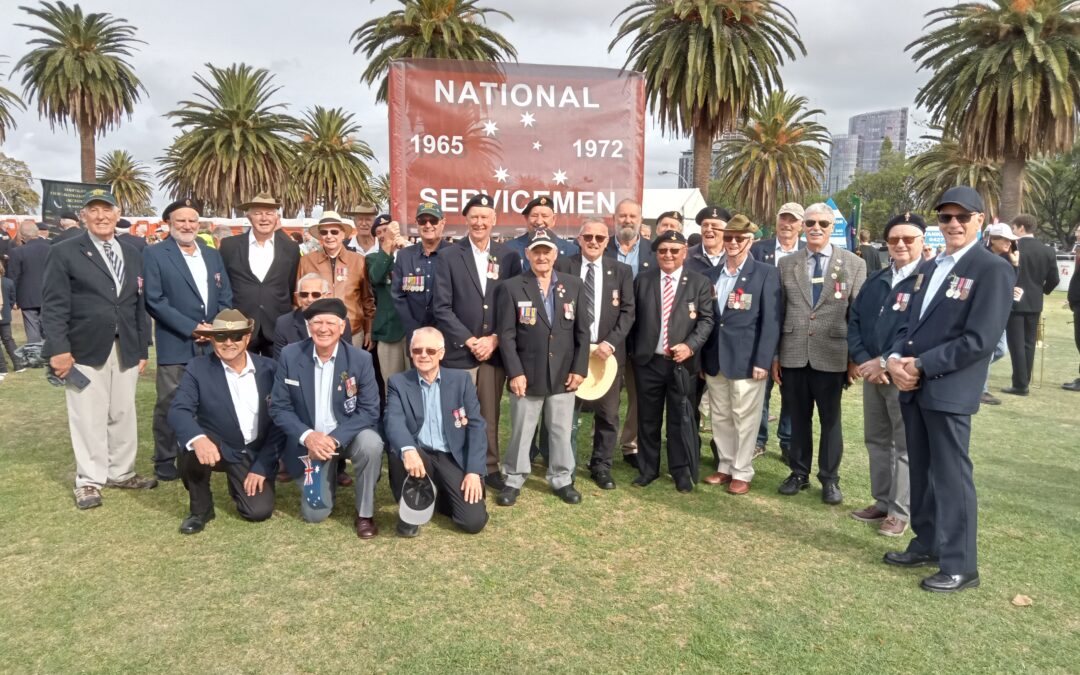A group of Nashos from 1965-72 warn many of them will die before they are able to access improved benefits and reparation under the proposed veteran entitlement act reform.
Nasho Fair Go claims while the changes “will benefit some veterans”, the reform does not go far enough and is taking too long to implement.
- In short: Nasho Fair Go claims many Nashos will pass away before they see any changes come from the entitlement act reform.
- Members say the reform will tick a few medical boxes, but it will not offer reparations for the financial impacts of conscription.
- What’s next? Nasho Fair Go continues to press its case for private medical and dental cover.
“The harmonisations of the three veteran entitlement acts is welcomed and long overdue,” the association’s President Geoff Parkes said.
“It will end years of inequity during which veterans had different entitlements depending on when they served.”
But he is deeply concerned about how long it is taking.
With the changes due to commence from 1 July 2026, Mr Parkes fears thousands of members will pass away between now and then.
“The delay in implementing the new legislation will mean over 2,000 1965-72 Nashos will not live to see them,” he said.
Mr Parkes has the unenviable task of taking calls from relatives of Nashos who have recently passed away.
With every call that comes, he has to take another member off the Nasho Fair Go emailing list.
“Last week was a good week,” he said.
“I only had to remove one from the list, but two a week is the average for us.”
In 2022 when Nasho Fair Go launched, the Parliamentary Budget Office estimated that approximately 31,000 of the original 48,000 Nashos from this cohort remained.
This number will decline more steeply as the years pass and Nashos meet their average life expectancy of roughly 85.
Working on the basis the average age of the Nashos is 75.5, most will have only 10 years left.
“A friend of mine who’s an epidemiologist plotted the curve which shows about 1,000 died last year with the rate increasing,” Mr Parkes said.
Come 1 July 2026, Nashos may still face delays of more than a year under the new act, based on current standards.
In the last financial year, the Department of Veterans’ Affairs reduced processing times for claims by 55 days, taking the average delay from 432 to 377 days.
The department said it is working hard to fix this by employing 500 additional staff to help clear the backlog and allocating $6.5 billion over the next five years to cover the volume of compensation payouts.
Nasho Fair Go claims the reform does not go far enough to compensate Nashos for other health, financial and social impacts of conscription, such as job losses and career disruptions.
“Yes, some veterans will be entitled to larger compensation [impairment payments], but it doesn’t provide any reparation for 1965 to 72 Nashos who lost two years out of their youth to conscription,” Mr Parkes said.
“Claims are only payable in respect to injuries and conditions that are on a veteran’s service medical records.
“Conditions such as arthritis, which are arguably due to excessive stress on young bodies over 50 years ago, are not covered.”
Nasho Fair Go continues to press its case for private medical and dental cover.

